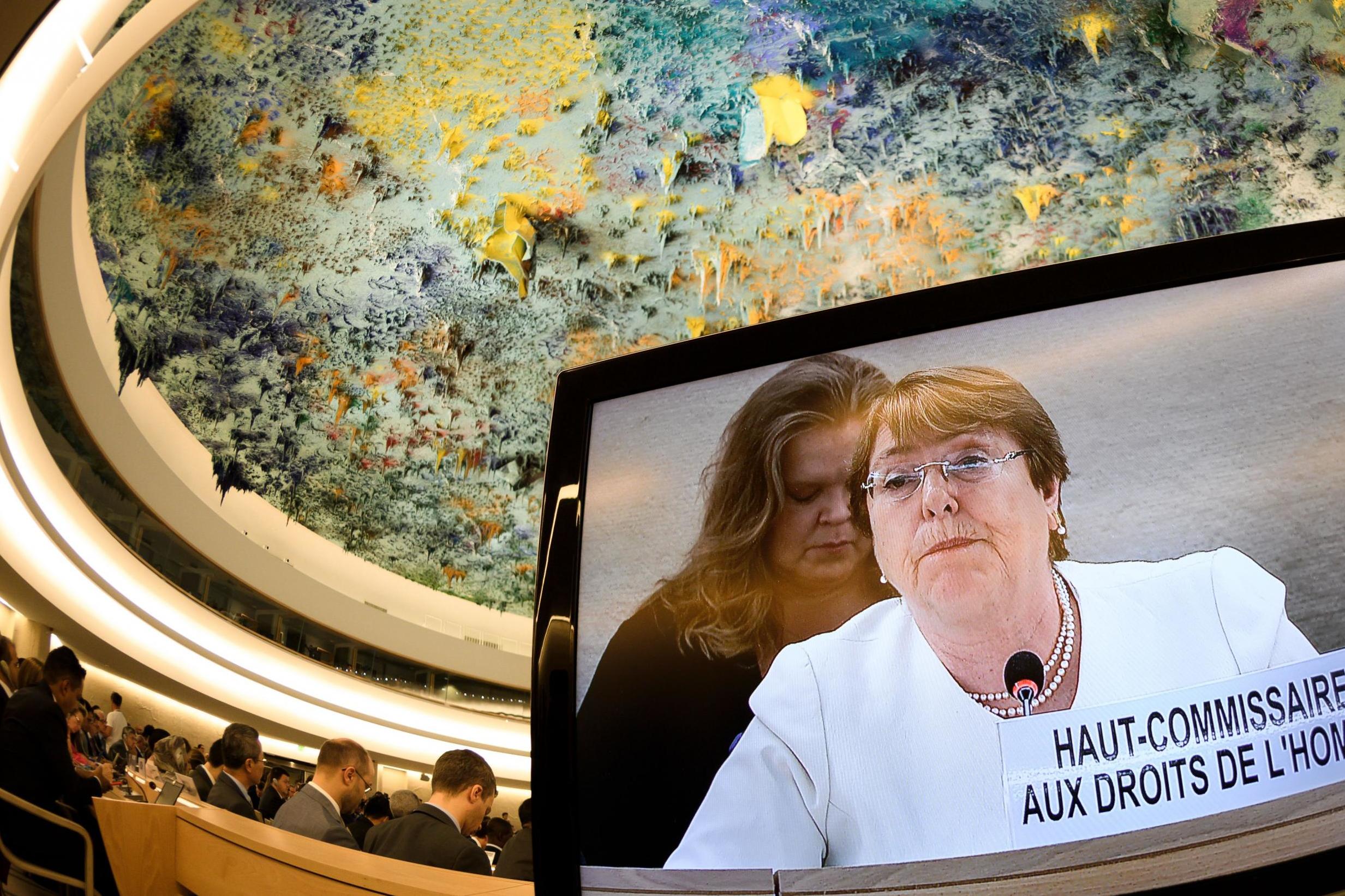New UN human rights chief calls Trump’s family separation policy ‘unconscionable’ in first speech
The new head of the human rights body does not hold back from hitting out at the US, Europe, Myanmar and others

The United Nations new human rights chief has hit out at Donald Trump’s administration over the separation of families at the US border, calling the policy “unconscionable”.
Michelle Bachelet, former president of Chile who was also once a political detainee, addressed the UN Human Rights Council in Geneva in her first speech and expressed concern over the lack of “redress” for those families and the 500 or so children still separated from families because their parents or guardians have already been deported.
Mr Trump discontinued the practice in an executive order on 20 June after widespread criticism about a policy that saw any adult illegal immigrant detained and subject to prosecution, but not before more than 2,000 children to be separated from their families after they crossed the US-Mexico border illegally in the months prior.
The parents had been charged with a crime, even those seeking asylum in the US, and children are unable to enter the US criminal justice system.
Ms Bachelet did not limit her criticism and concerns to the US, however, and promised to bring voice to the plight of victims, adding: "I have been a political detainee and the daughter of political detainees. I have been a refugee and a physician – including for children who experienced torture and the enforced disappearance of their parents".
She said “attacks and persecution appear to be continuing” against Rohingya Muslims, forcing hundreds of thousands to flee from Myanmar's Rakhine state into Bangladesh.

A recent UN report by independent investigators stated Myanmar’s military carried out mass killings, gang rapes, burning whole villages down, and other atrocities with a “genocidal intent”.
Ms Bachelet echoed calls to create an independent "mechanism" to investigate possible human rights violations to use in the future in national and international courts.
She also spoke about Syria, specifically the "ongoing military operations" in the rebel-held Idlib province, calling the violence Syrians have experienced these past several years "interminable and terrible".
Ms Bachelet also turned her focus on the European Union and urged member country's like Italy to stop its "political posturing" and putting lives at risk by denying entry of charity rescue ships coming from the Mediterranean sea.
She also urged the entire union to safeguard asylum protections for those refugees seeking it.
On the crisis in Yemen, Ms Bachelet said she "will be closely following what steps are taken to hold the perpetrators accountable and provide remedy and compensation to the victims,” after urging the "Saudi-led military coalition in Yemen to show greater transparency in its rules of engagement and hold to account perpetrators of air strikes on civilians," Reuters reported.
The allegations of China putting up to one million people from the Uyghur Muslim community in the Xinjiang province in large "re-education" camps is "deeply disturbing," the newly minted chief said.
She appealed to China to allow UN and other human rights monitors into the country to investigate the accusations of “forced political indoctrination” and religious restrictions placed by the government on the Turkic Uyghur population in the western province.
China has denied the allegations of internment camps and accused “external factors” of causing unrest in the region.
Agencies contributed to this report.
Join our commenting forum
Join thought-provoking conversations, follow other Independent readers and see their replies
Comments
Bookmark popover
Removed from bookmarks